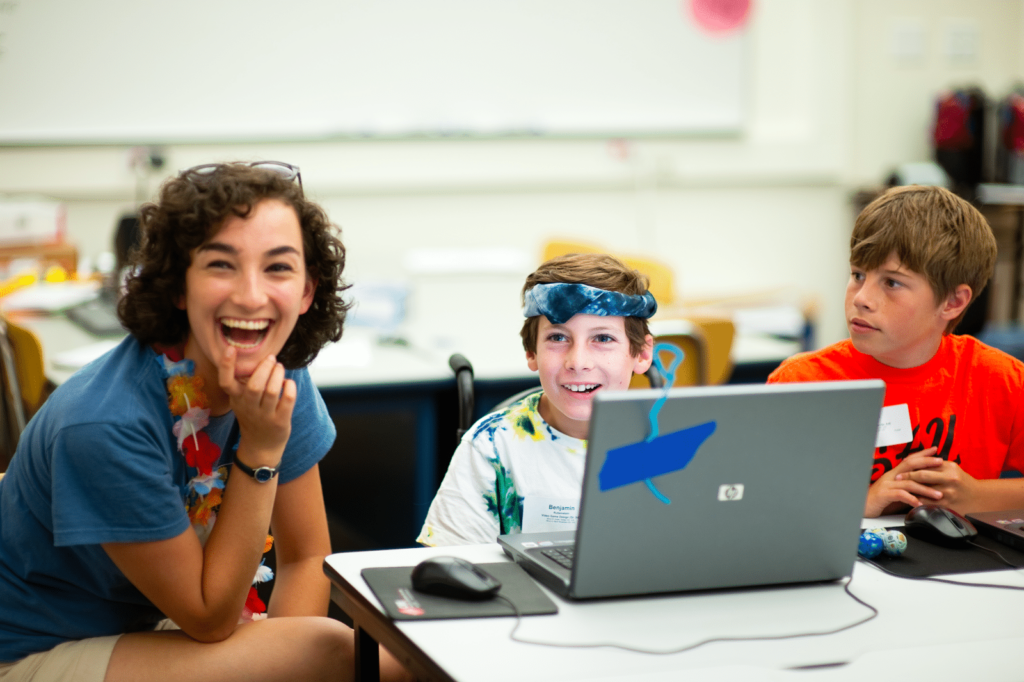Do you remember going to a library and pouring over stacks of thick, dusty periodicals looking for data and information? Or are you young enough to have completed your research papers entirely from online databases accessed from the comfort of home? Learning has certainly changed in recent years, as has access to a wealth of information. Students no longer spend their entire days in traditional desks, sitting in rows. Now, education must factor in the prevalence of technologies that have led to a variety of new learning formats. There is e-learning and u-learning, not to mention mobile learning, also known as m-learning. Each has its benefits and applications for various purposes. So, what is mobile learning and how can kids benefit from it?
Differentiating the Options
The information age has brought us access to data, peer-reviewed research and primary source documents as close as the nearest digital device. Maps, photos, news and opinions are but a few of the details instantly accessible to us thanks to the internet. This has had both positive and negative implications for learners. Here are some of the differences:
- e-learning — Learning that depends on electronic media is called e-learning. It requires a computer or laptop with internet access and can involve a course of study at home or at school. e-learning is so versatile, it can be applied to a single course or to K-12 or post-secondary education in its entirety. This enables homeschooling, remote access to distant campuses and even diploma/degree availability to incarcerated individuals. This format is good for displaying large or complex graphics, for split screens and tab toggling, and when complicated online tools are needed. Media literacy skills enable users to evaluate sources and identify bias.
- u-learning — The “u” in u-learning stands for ubiquitous, suggesting learning can take place everywhere. Ubiquitous learning is an offshoot of ubiquitous computing. Think about monitoring a doorbell camera from your mobile phone while on vacation, pulling up recipes on the refrigerator door or sharing photo albums on the television. The proliferation of connected devices from mobile phones and fitness trackers to interfaces in vehicles, appliances and medical devices has brought the idea of ubiquitous computing closer, as we are able to access and save information in a variety of locations from many different devices. Some of the greatest challenges are security, international regulation and the provision of seamless integration.
- m-learning — A subset of electronic learning, mobile learning, sometimes abbreviated m-learning, has enabled some revolutionary changes in education. The availability of handheld devices, including smartphones and tablets, has made information and communication technology available on a worldwide scale. The portability of these devices allows us to use them anywhere we can get a signal and has made computing relatively affordable. Ideal for quickly accessing small bits of information, mobile devices can go with us to places computers may not go. But since they feature a much smaller display, they are not appropriate for all applications.
The Benefits of Mobile Learning
Google defined four micro-moments throughout the day when we commonly reach for our mobile devices: 1) I want to know, 2) I want to go, 3) I want to do and 4) I want to buy. There is so much opportunity to learn as our devices provide us with games, entertainment, weather, news, purchasing, mapping and communications capabilities. The versatility of mobile learning makes it ideal for many reasons. From a learner standpoint, mobile devices are available 24/7, making them appropriate for experiential learning on the go. Kids are freed from the constraints of a classroom and able to learn in a variety of locations. They can build context by pulling up definitions and diagrams. Mobile devices can conveniently record photos and videos, time experiments and document data, connect us with background information and help us communicate with collaborators.
Applications of Mobile Technologies
Kids can gain practice using their mobile learning skills outside the classroom through authentic projects that challenge them. Galileo Summer Quest has several engaging majors that support mobile learning for middle school kids. For example, kids who are interested in learning to tell their stories through video can participate in YouTube Producers. After exploring the various genres and experimenting with production and editing techniques, campers shoot their own short films and post them on their own channels. Kids who are intrigued by the 3D adventures of virtual reality have the opportunity to create their own immersive environment on their mobile device. They learn about hardware and software before giving their family and friends a chance to experience their story.
At the core of each and every GSQ major is the Galileo Innovation Approach®. This framework helps campers view the world through an innovative lens as it immerses them in the Innovator’s Mindset and introduces them to the Innovator’s Knowledge. In addition, kids come away with the Innovator’s Process, a cycle they can apply in many contexts to implement their own ideas. In addition to practice with mobile technology, campers gain experience working collaboratively as a team. They think critically, solve problems and communicate effectively all under the watchful eyes of Galileo’s enthusiastic and inspiring staff.
Give Them Opportunities to Utilize Their Skills
Mobile learning makes purposeful use of the devices kids already possess and value. Viewing their smartphones and tablets as learning tools puts power in kids’ hands. It extends their reach beyond the classroom, allowing them to satisfy their curiosity and take advantage of teachable moments wherever they occur. Using their mobile devices to create digital content empowers kids to act on their ideas, while teaching them valuable technology skills that provide benefit in school, at home and on the go. As mobile technology becomes increasingly important, they will be ready to apply it with expertise.
Give kids a boost with mobile learning by checking out these summer camps in your area: San Francisco Bay Area, Southern California, and Chicagoland. Sign up for our mailing list to keep up-to-date on our camp happenings, innovation resources and registration information for our upcoming 2019 camp season.



